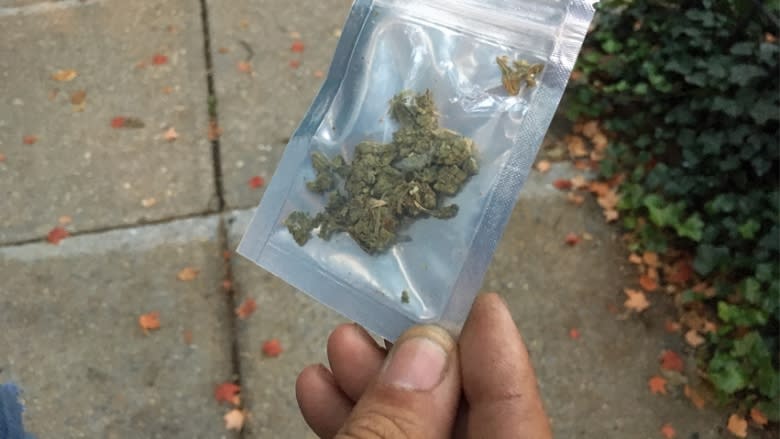Montreal seeks 3rd of future tax revenue from cannabis, may OK weed use at tam-tams
The Projet Montréal administration says Montreal welcomes Quebec's proposed legislation on the legalization of cannabis and wants to make sure the city gets its fair share of the revenue pie.
Montreal is seeking a third of any tax revenues from the sale of cannabis products on its territory. Under its proposal, the other two-thirds would be split between the provincial and federal governments.
Those recommendations are contained in the city's brief to the provincial government, tabled at a meeting of Montreal's executive committee Wednesday.
"It's cities that are going to be shouldering most of the management of cannabis legislation," said Coun. Robert Beaudry, a member of the city's consultation committee on the legalization of cannabis, which is to take effect in July.
Among new costs the city will incur are those associated with the hiring of as many as 50 additional police officers and an estimated $4 million to $9 million in training firefighters and other civil security workers, Beaudry said.
Those cost estimates are contained in another report from the accounting firm Raymond Chabot Grant Thornton, commissioned by the city.
No plan to ban weed at all outdoor events
Generally, the report supports the province's plan to enforce the same rules for using cannabis in public as those established for the use of tobacco.
However, the city wants some leeway to make its own rules when it comes to outdoor concerts and festivals.
Beaudry cited the Sunday tam-tams in Mount Royal Park — where the presence of weed has long been tolerated — as an example of an outdoor event at which the city may not prohibit smoking cannabis.
"I don't think it would be appropriate to ban it at the tam-tams, knowing its history," he said.
But at more family-oriented festivals such as Montreal's Fête des neiges, "it may not necessarily be appropriate."
The city agrees with the government's proposed ban on using cannabis while behind the wheel, however it is seeking clarity on how that would be applied.
Beaudry said the city is taking a "public health approach, and not a public security approach."
"That flexibility would allow us to avoid stigmatizing people and to [make decisions] quickly," he said.



